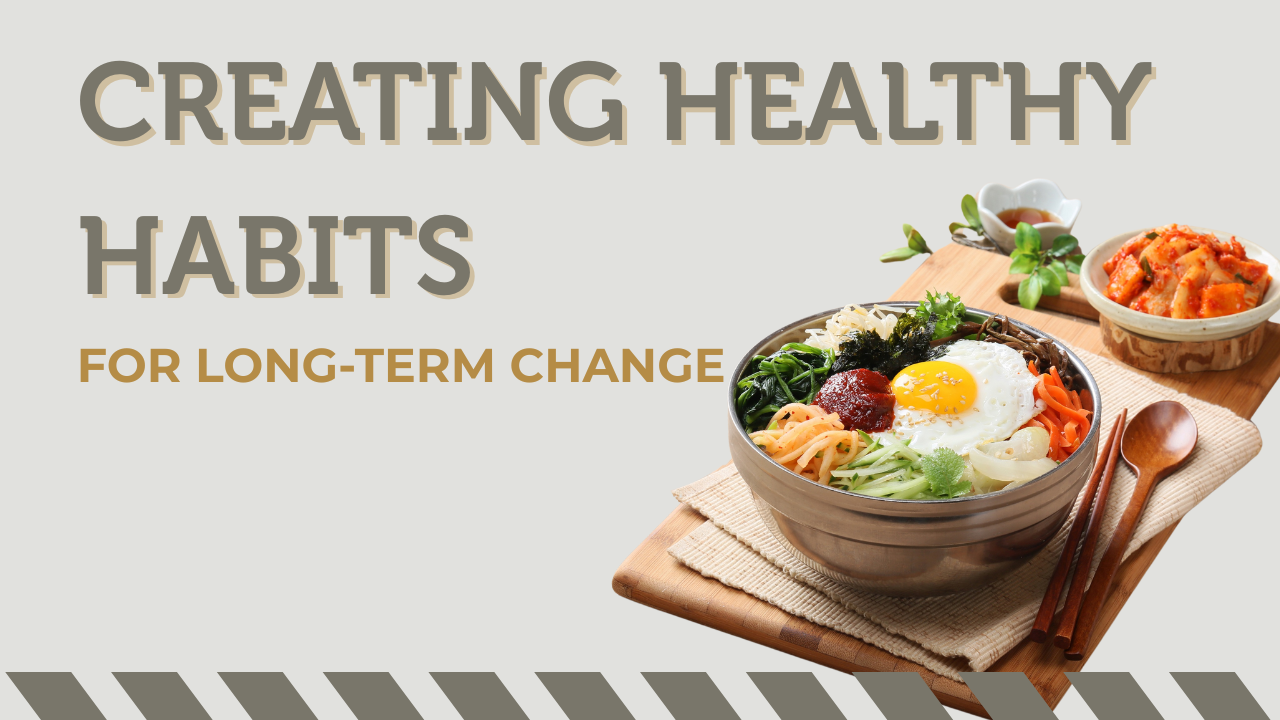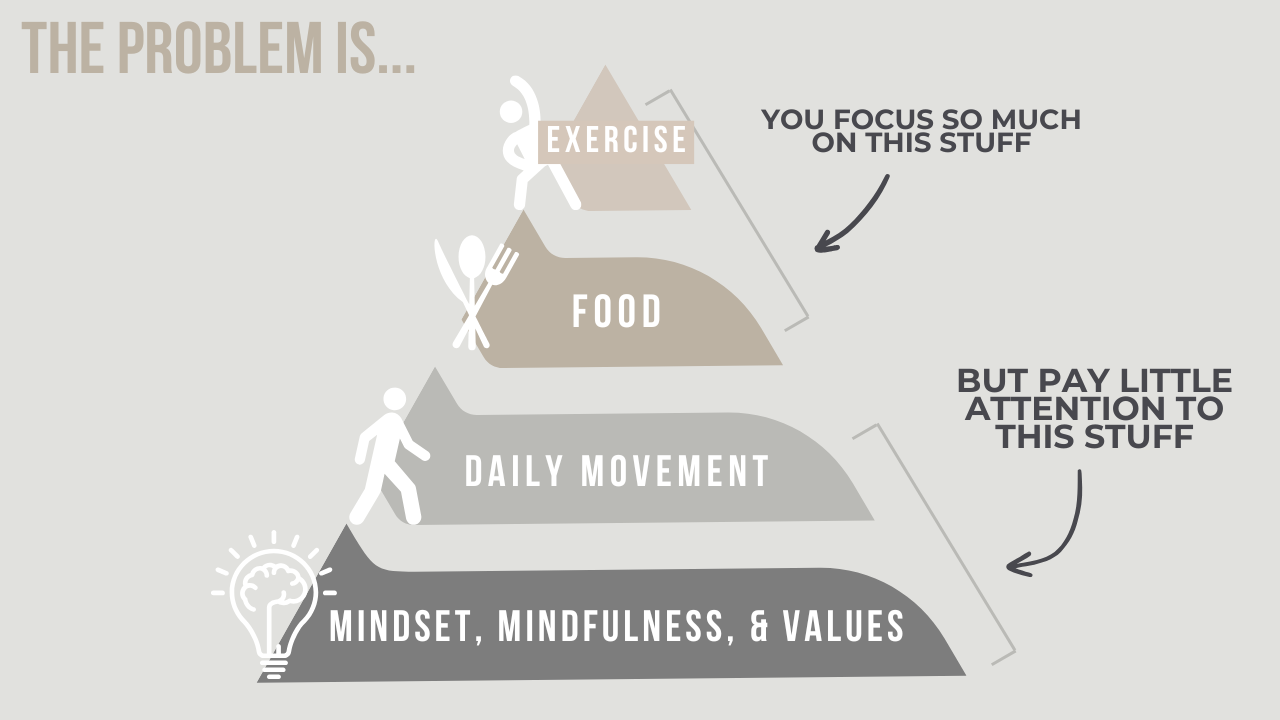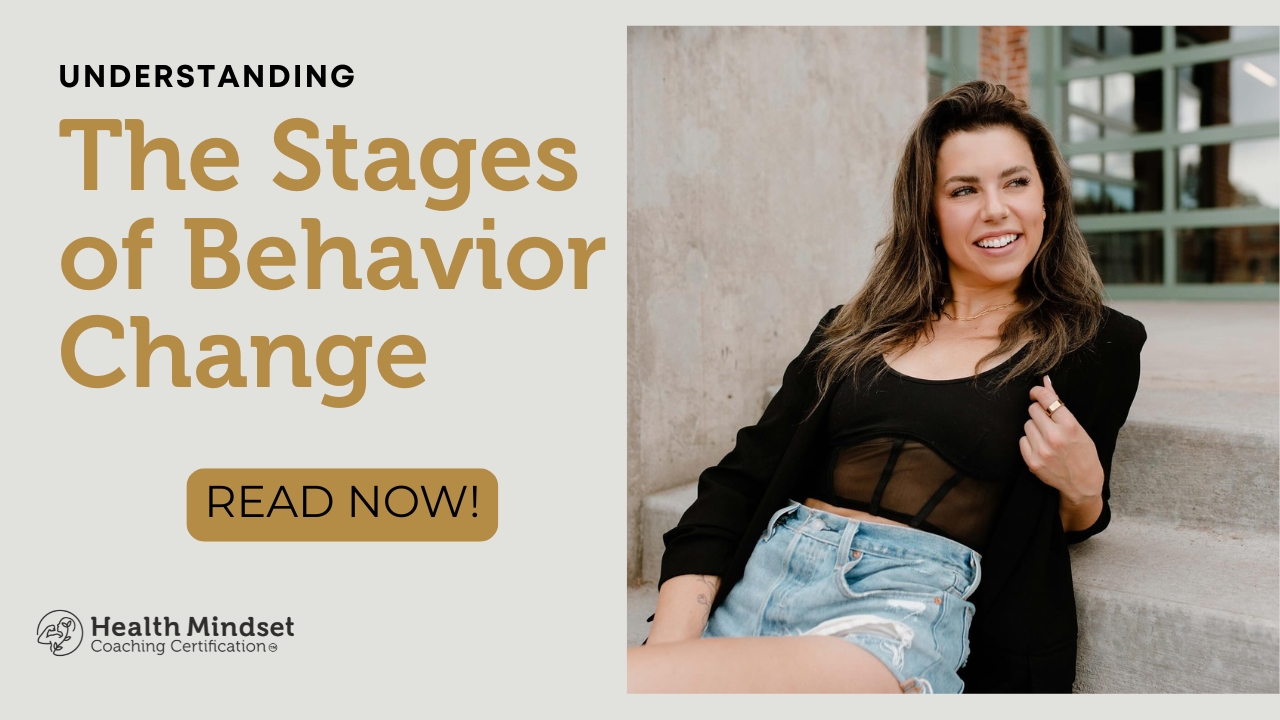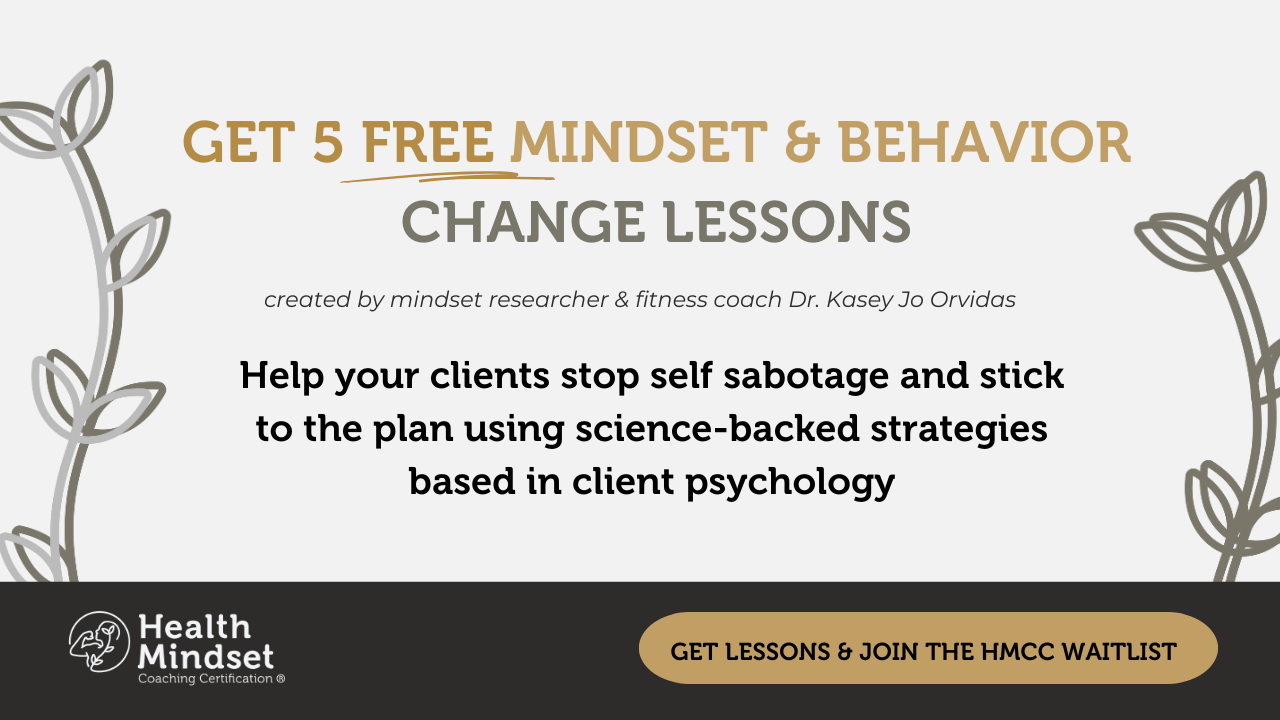How to Help Clients Create Healthy Habits
Jul 18, 2025
As a fitness coach, how many times have you told clients to eat more vegetables, drink more water, and stick to their workouts?
It's all so simple, right? It's what they need to get results, and yet, so many clients struggle to follow through, despite knowing what they "should" be doing.
Why is that?
Because coaching isn't just about delivering information — it's about helping your clients create healthy habits that last. Let's be real, if it were as simple as delivering that information, they probably wouldn't need you to begin with.
Helping them create new healthy habits means shifting from surface-level strategies like meal plans and macros to the deeper, often-overlooked elements of behavior change: mindset, communication, identity, and values.
If you're ready to help your clients stop starting over and actually stick with their routines, this post will guide you through how to coach from the inside out.
Table of Contents
Mindset, Mindfulness, and Values
Before You Try to Help Clients Form Healthy Habits
Understand What Habit Formation Really Requires
Address Limiting Beliefs Early
Tying Values to Behaviors Leads to Good Habits
Creating a Healthy Lifestyle
The Top of the Pyramid of Good Habits
Learn to Ask Better Questions
Help Clients Form New Habits That Last
Connect with us!

Mindset, Mindfulness, and Values
Even some coaches who call themselves mindset coaches fail to look at their clients':
- mindsets
- mindfulness
- values
These three things are the foundation of creating long-term change and a healthy life.
There are different elements of this that you should look at as a fitness coach to help your clients form more positive habits to achieve success.
Before You Try to Help Clients Form Healthy Habits
While your intentions are well and good, you have to first and foremost ensure your clients WANT to create these healthy habits.
You've probably heard me talk a lot about intrinsic motivation and how one of the keys to your client's success is that their desire to change comes from within, but another key component is whether they are actually ready and willing to change.
When it comes to adopting healthy behaviors, we will see a range of readiness, from the clients who kinda sorta want to change (they are contemplating change) to those who are ready to take action and establish healthy habits ASAP.
The right way to support your clients will depend on which stage of change they are at.
Understand What Habit Formation Really Requires
The foundation of long-lasting behavior isn't just repetition. It's belief, clarity, and alignment. Your clients need more than a plan. They need to see themselves as the kind of person who lives out that plan.
Helping clients create healthy habits starts with helping them:
- Believe change is possible. They not only have to believe that change is possible, they must believe that THEY are capable of change.
- Understand why they want to change. Look for intrinsic motivation, and help them define why building healthy habits matters to them (beyond aesthetics or pressure from others/society). "To fit into my bridesmaid dress" ain't gonna cut it.
- Define success in their own words. What you or I consider success might be way off base from what they view as success.
It's a lot easier to form good habits once these things are in place. And it's a good idea to have your client write down these things so they can look to them as a reminder when they inevitably struggle at some point.
Address Limiting Beliefs Early
Many clients unconsciously sabotage themselves with thoughts like:
- "I always fail at this."
- "I'm just not a disciplined person."
- "This only works for other people."
Hello, fixed mindset! These are identity-based beliefs that block progress.
As a coach, you can help clients reframe these thoughts by pointing out past successes (no matter how small). Maybe they didn't hit their macros all week, but they DID meal prep or get their steps in every day. It's still progress that deserves acknowledgement.
You can also encourage neutral self-talk over perfectionist thinking. All-or-nothing thinking won't get them where they want to be, and neither will bullying themselves for not getting things JUST right.
Behavior change becomes more natural, and they are more likely to form a true lifestyle change when they believe they are actually becoming a healthier person.
Tying Values to Behaviors Leads to Good Habits
Before assigning action steps, you have to figure out what truly matters to your client. Remember how I previously mentioned you need to help them find intrinsic motivation and define success in their own words? This works in line with that.
Values act as intrinsic motivation, so it's easier to develop new behaviors when they are in line with the things your client values.
A goal like wanting to fit into a bridesmaid's dress or to lose weight becomes more powerful when connected to values like:
- "I want to be a present, energetic parent."
- "I value longevity and independence as I age."
- "I want to feel confident speaking on stage."
Help clients create healthy habits that reflect these values, not just arbitrary outcomes.

Creating a Healthy Lifestyle
We both know that the one-hour workout your client does several times a week makes the smallest impact on their daily caloric burn. To be honest, if that one hour is the only time they are moving, it's not a healthy lifestyle; that's a break from an unhealthy lifestyle.
Encourage clients to get more movement throughout their day.
Walking, playing, dancing, and gardening are all great ideas. Regular movement is MASSIVELY important for both their physical and mental health.
You can implement techniques like habit stacking to get them to move more. For example, if they work from home and have weekly reports to write, encourage them to do the reports from their walking pad or to take meetings while on their walking pad.
Encouraging regular daily movement will not just improve their relationship with physical activity, it will make other new habits easier to adopt as they do more and more things that "a healthy person would do."
The Top of the Pyramid of Good Habits
Workout programs and nutrition protocols are critical components of health, but on their own, they don't create lasting change. They sit at the top of the pyramid — visible and important, but entirely dependent on a solid base (i.e., mindset).
Many coaches spend the bulk of their time creating the perfect workout split or macro breakdown, and then wonder why clients ghost them or fail to follow through. It's not because the plan was wrong — it's because the foundation underneath the plan wasn't strong.
When you prioritize mindset, values, and communication, nutrition and exercise strategies become more effective and easier to stick to.
There's absolutely a place for detailed, science-backed fitness programming. The problem arises when you deliver these strategies before a client has the mindset tools to be consistent.
A good workout program or nutrition guidance will only get them so far. Those things alone won't create good habits or help them ditch the unhealthy behaviors that have been holding them back for so long.
Having a good foundation also makes it more enjoyable for your clients to create new habits and stick to the plan you've created with them. (Notice I said WITH because client autonomy is another key component of success.)
Learn to Ask Better Questions
Great coaches don't just give advice. They ask the right questions.
The questions you ask your clients should build awareness, ownership, and autonomy.
Try these:
- What does healthy mean to you?
- What gets in the way when you try to eat better?
- If you were already the kind of person you want to become, what would you do today?
This kind of coaching deepens the relationship, builds trust, and leads to lasting change.
I also have a FREE guide with the best client check-in questions you should ask to help your clients shift their mindset and create healthy changes. You can snag it here!
Help Clients Form New Habits That Last
You miss the picture of behavior change if you focus solely on workouts and nutrition plans. You also do your clients a disservice by not setting them up for future independence with a healthy lifestyle.
But when you dig deeper into mindset, beliefs, values, and mindfulness, you become a coach who transforms lives, not just bodies.
If you want to improve your coaching skills and feel confident guiding real, lasting behavior change, start with my 5 FREE Mindset and Behavior Change Lessons.
These bite-sized trainings are packed with tools you can start using right away to help you retain clients longer, confidently help clients work through mindset barriers, and make your coaching more profitable.
The Health Mindset Coaching Certification is the best way to help your clients improve their mindset and create lasting behavior change. This 14-week program for health and fitness professionals equips you with the skills you need to help your clients end self-sabotage, break through mindset barriers, and make behavior changes for good.
You'll learn research-backed methods from Cognitive Behavioral Therapy and other psychological tools that will help your clients embrace a growth mindset and create lasting behavior change.
Check out my original post here!
Connect with us!
Email: [email protected]





